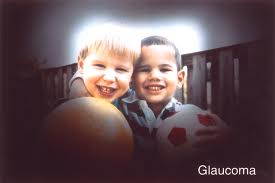Understanding Glaucoma: A Guide for Patients
What is Glaucoma?
Glaucoma is a group of eye conditions that damage the optic nerve, essential for good vision. This damage is often caused by abnormally high pressure in the eye. If left untreated, glaucoma can lead to vision loss or blindness. It is one of the leading causes of blindness for people over the age of 60.

Symptoms of Glaucoma
Glaucoma symptoms can vary, but common signs include:
- Gradual loss of peripheral vision.
- Tunnel vision in advanced stages.
- Severe eye pain.
- Nausea and vomiting.
- Blurred vision.
- Halos around lights.
- Redness in the eye.
Causes and Risk Factors
Glaucoma is often associated with increased pressure in the eye, but it can occur with normal eye pressure as well. Risk factors include:
- Age (over 60).
- Family history of glaucoma.
- Medical conditions such as diabetes and high blood pressure.
- Thin corneas.
- Extensive use of corticosteroid medications.
- Previous eye injuries or surgeries.
Types of Glaucoma
There are several types of glaucoma:
- Open-Angle Glaucoma: The most common form, where the drainage angle formed by the cornea and iris remains open, but the trabecular meshwork is partially blocked.
- Angle-Closure Glaucoma: The drainage angle is closed or blocked, causing a rapid increase in eye pressure.
- Normal-Tension Glaucoma: Optic nerve damage occurs even though eye pressure remains within the normal range.
- Congenital Glaucoma: Present at birth, caused by abnormal development of the eye’s drainage system.
- Secondary Glaucoma: Results from another medical condition such as diabetes or cataracts.
Diagnosis
Glaucoma is diagnosed through a comprehensive eye exam, including:
- Tonometry: Measures intraocular pressure.
- Ophthalmoscopy: Examines the optic nerve.
- Perimetry: Visual field test.
- Gonioscopy: Inspects the drainage angle.
Treatment
While glaucoma damage is irreversible, treatment can prevent further vision loss. Treatment options include:
- Medications: Eye drops to reduce eye pressure.
- Laser Therapy: Improves drainage of eye fluid.
- Surgery: Creates a new drainage pathway for eye fluid.
Prevention
While not all cases of glaucoma can be prevented, certain measures can help reduce risk:
- Regular eye exams: Early detection and treatment are crucial.
- Exercise: Can help lower eye pressure.
- Protective eyewear: Prevents eye injuries.
- Healthy diet: Supports overall eye health.
